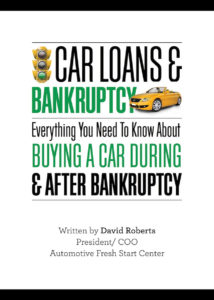
Financial troubles don’t just affect our pocketbooks, they can affect our mental and physical health too. According to a CreditCards.com survey released last week, 65 percent of Americans lose sleep at night thinking about their finances. That’s a 9 percent increase from last year.
The Research
CreditCards.com conducted their survey through telephone interviews with a representative sample of 1,000 adults living in the US. Here’s a quick breakdown of what they found:
- US citizens have higher levels of financial stress today than they did 10 years ago, despite the economic recovery
- 65% of respondents reported healthcare costs as their biggest financial worry
- 37% are most worried about saving for retirement
- 34% are most worried about paying their student loan debt
- 25% are most worried about paying their mortgage
The Problem with Insomnia
Sleep deprivation can have both short and long term ramifications on our mental health, happiness, and productivity at work. According to Archibald D. Hart, Ph.D., author of Sleep, It Does a Family Good: How Busy Families Can Overcome Sleep Deprivation, “If you under-sleep by one hour a night, you will see a cumulative decline in job performance by as much as 30% to 40%, the same effect as being drunk.”
Other negative effects of insomnia include:
- Increased risk of diabetes, stroke and heart disease
- Increased risk for depression and anxiety
- Memory lapses
- Increased risk of car accidents
- Hair loss and skin issues
- Weight gain
For the 1 in 3 adults in the US who struggle with insomnia, this can result in a catch-22: you need sleep to relieve stress, but you need to relieve stress in order to sleep.
Tips to Reduce Insomnia and Financial Stress
If financial pressure is causing you to lose out on sleep, simply ignoring the problem and hoping it will go away won’t help. But taking action will. “The most important thing you can do if your debts feel out of control is to take some sort of action, even if it’s small,” says Matt Shulz, CreditCards.com’s senior industry analyst.
Here are some steps you can take:
Identify the problem and make a plan. Take a step back and review you family finances, how you cope with the stress, and write down some small steps your family can take now to make the situation better.
Get help. You don’t need to tackle a huge debt burden on your own. Contact a local financial advisor or local bankruptcy attorney to help you explore your options.
Don’t assume the door is shut. Debt can feel like a heavy burden, but there are more options available to you than you might realize. If you need to purchase a new vehicle to commute to work, for example, poor credit or even bankruptcy does not necessarily stop you – in fact, it might even help. Consider reading “Car Loans & Bankruptcy: Everything you need to Know about Buying a Car During & After Bankruptcy.” It lays out a strategic approach to not just buying a car, but quickly rebuilding your credit as well.
If overwhelming financial stress is causing you to lose sleep or experience other stress-related behaviors, consider seeking help from a counselor in addition to a financial advisor. With the right approach, your financial struggles now could be a turning point for a more prosperous life.
 For people considering bankruptcy, one of the biggest fears is:
For people considering bankruptcy, one of the biggest fears is:
“What will I do about a car?”
You likely believe that once you declare bankruptcy, you will have a hard time qualifying for an automobile loan. Our eBook with walk you through everything you need to know about buying a car during and after bankruptcy. Learn about your options so you can make the best decision for your circumstances.
Automotive Fresh Start Center, LLC is NOT a debt relief agency, as defined in section 101(12A) of the Bankruptcy Code. We do not provide bankruptcy assistance. The articles, videos, images, digital products, and other content maintained on this site as well as the opinions voiced in this material are for general informational purposes only and are not intended to provide specific advice or recommendations for any individual. No information on this site constitutes legal or financial advice and should not take the place of consulting with a licensed bankruptcy attorney, debt relief agency, or certified financial advisor.
